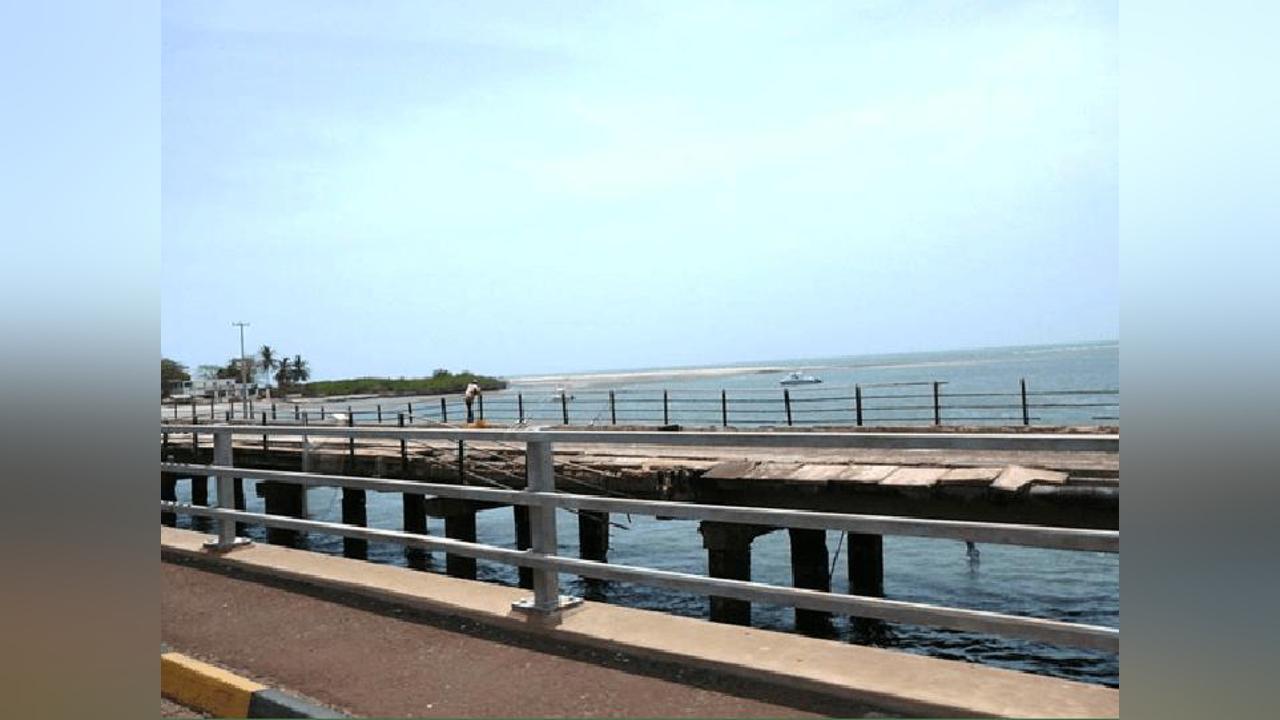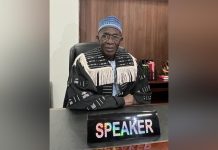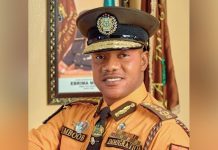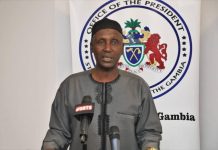Africa-Press – Gambia. By Rtd Lt Colonel Samsudeen Sarr,
The spectre of militarism, it seems, still looms large over Denton Bridge—the gateway to our capital, the symbolic artery through which the lifeblood of our nation’s governance flows. A place where democracy should breathe freely is instead shadowed by the menacing presence of infantry soldiers decked in full combat gears, as if preparing for a battle that never was.
I’ve raised this alarm before, warning against the creeping normalization of military presence in spaces that should belong solely to civil authority or the police. That warning ostensibly echoed into the void, unanswered.
This practice, I must remind my compatriots, has roots in a turbulent past. It first sprang up in the aftermath of Senegal’s 1981 military intervention, a violent response to the Kukoi Samba Sanyang-led insurrection. At that time, the presence of troops in civilian areas was seen as a necessary evil—an immediate response to a bloody chaos. But like a weed left untended, the practice entrenched itself.
It was then nurtured—indeed, institutionalised—by the 1994 military coup d’état led by young officers of the Gambia National Army. What began as emergency tactics soon became habit, and habit ossified into a doctrine alien to democratic values. Soldiers became familiar fixtures in places they had no business frequenting.
Yet, here we are in 2025—eight years into what is supposed to be a civilian democratic dispensation—and the bridge remains a garrison. Not by engineers, nor by customs agents, nor by the police—but by infantrymen in camouflage, helmets strapped tight, weapons slung across their chests. For what purpose?
Where is the threat?
Where is the declaration of emergency, the legislative summons, the constitutional rationale?
There is none.
Which leads me to turn once again to an officer I once stood shoulder-to-shoulder with: Lt. General Mamat Cham, Chief of Defence Staff, Gambia Armed Forces. We trained together, we studied the art and ethics of soldiering at Fort Benning in Georgia and Fort Bragg in North Carolina. During my training on the duties of the military Adjutant General at Fort Benjamin Harrison in Indiana, the same lesson was consistently emphasised; that in peacetime, a soldier’s place is not in the streets of the city.
Beyond these three distinguished American institutions of military excellence—Fort Benning, Fort Bragg, and Fort Benjamin Harrison, every conventional command and staff college, whether at the junior, senior, or war college division, across the globe, teaches the same time-honoured military doctrine. It is a universal language of professionalism and discipline. For the Gambian military to deviate from these established norms and expect enlightened eyes to look the other way is not only naïve but reckless. As a former commander of The Gambia National Army and a lifelong student of military science, I find it impossible to stay silent. I am duty-bound to denounce this blatant breach of the sacred standards that define a competent armed force under a democratic dispensation.
Let me remind General Cham, of what military doctrine demands—just in case it has slipped his mind.
Firstly, consider the principle of military deployment in civilian areas during peacetime. In functional democracies, the rule is clear: the military intervenes only when the civil fabric is torn—not merely frayed or creased, but irreparably torn.
There are precisely three constitutionally defensible scenarios that justify the presence of military boots on civilian ground:
(A) In the event of national emergencies or natural disasters—floods, fires, pandemics—those acts of God that demand all hands-on deck.
(B) When a state of emergency or martial law is officially declared by the executive, subject to parliamentary or judicial oversight, and lifted as soon as order is restored.
(C) During Military Aid to Civil Authorities (MACA), where the military acts in a supporting role—not a dominating one—under strict civilian control.
What we are witnessing at Denton Bridge violates all of these principles. There is no natural disaster. No armed insurrection. No executive declaration. What we see is the slow and silent erosion of democratic norms, masked as vigilance.
Secondly, let us not underestimate the power of military symbolism. Uniforms are more than fabric and metal—they send messages. A soldier in standard fatigues, beret on, weapon slung discreetly, represents discipline and readiness. But a soldier clads in full battle dress, with an assault rifle locked and loaded, stationed along a civilian thoroughfare, conveys a harsh message—not of protection, but of intimidation, suppression, and control. Military doctrine is clear: helmets and tactical gear are for live combat—not routine watch posts. Assault rifles are for defending the nation—not for staring down market vendors or civilian drivers commuting in daylight. Every deployment in a public space must be backed by written orders, proper identification, and clear channels of accountability.
Ask yourself, General Cham—are these standards being upheld at Denton Bridge?
Let me conclude with a clear and emphatic message: Denton Bridge is not a battlefield.
Gambians cannot claim to uphold democracy while the soldiers treat fellow citizens as suspects and our urban spaces as war zones. The bridge is not a frontline—it is a passageway, a portal to a nation striving to emerge from the shadows of authoritarianism.
To perpetuate this charade is more than a tactical blunder; it is a betrayal—of our Constitution, of the military’s professional integrity, and of the solemn oaths sworn by officers in service to the Republic.
Let the police perform their rightful duties there, and let our soldiers return to their barracks.
Let democracy flow freely across that bridge.
I refused to entertain the notion that the masterminds behind The Gambia’s much-celebrated, first-ever written National Security Policy—and the long-awaited blueprint for Security Sector Reform (SSR)—somehow sidestepped this significant basic tenet of military doctrine in their grand design. That is, unless they intend to claim that these exceptional documents remain shelved, still awaiting their actual implementation.
Source: The Standard Newspaper | Gambia
For More News And Analysis About Gambia Follow Africa-Press






